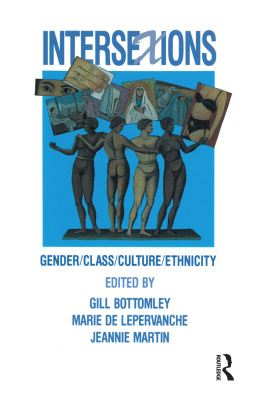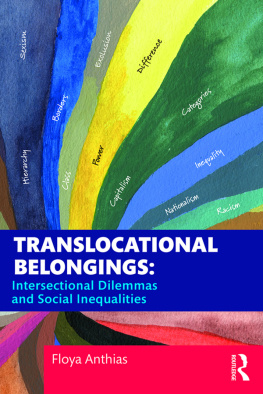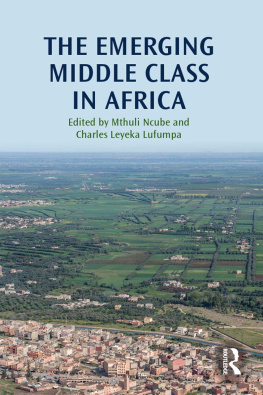
Class Dynamics of Development
This book argues that class relations are constitutive of development processes and central to understanding inequality within and between countries. It does so via a transdisciplinary approach that draws on case studies from Asia, Latin America and Sub-Saharan Africa. Contributors illustrate and explain the diversity of forms of class relations, and the ways in which they interplay with other social relations of dominance and subordination, such as gender and ethnicity, as part of a wider project to revitalise class analysis in the study of development problems and experiences.
Class is conceived as arising out of exploitative social relations of production, but is formulated through and expressed by multiple determinations. By illuminating the diversity of social formations, this book illustrates the depth and complexity present in Marxs method.
This book was originally published as a special issue of Third World Quarterly.
Jonathan Pattenden is a Senior Lecturer in Politics and Development Studies at the University of East Anglia, UK, and author of Labour, State and Society in Rural India: A Class-Relational Approach (Manchester University Press, 2016). His research on the political economy and political sociology of development focuses on class relations, labour and the state in South and South-East Asia.
Liam Campling is a Senior Lecturer in Political Economy at Queen Mary University of London, UK, co-author of Capitalism and the Sea (Verso, forthcoming), and an editor of the Journal of Agrarian Change. His research focuses on the interplay of multinational enterprises, international trade and the political economy of industrial development and environmental change.
Satoshi Miyamura is a Lecturer in the Economy of Japan in the Department of Economics at the School of Oriental and African Studies (SOAS), University of London, UK. His research interests are in the political economy of development in India and Japan and the economics of labour and institutions.
Benjamin Selwyn is a Professor of International Relations and International Development at the University of Sussex, UK. He is author of Workers, State and Development in Brazil (Manchester University Press, 2012), The Global Development Crisis (Polity, 2014) and The Struggle for Development (Polity, 2017).
ThirdWorlds
Edited by
Shahid Qadir University of London, UK
ThirdWorlds will focus on the political economy, development and cultures of those parts of the world that have experienced the most political, social and economic upheaval, and which have faced the greatest challenges of the postcolonial world under globalisation: poverty, displacement and diaspora, environmental degradation, human and civil rights abuses, war, hunger, and disease.
ThirdWorlds serves as a signifier of oppositional emerging economies and cultures ranging from Africa, Asia, Latin America, Middle East, and even those Souths within a larger perceived North, such as the US South and Mediterranean Europe. The study of these otherwise disparate and discontinuous areas, known collectively as the Global South, demonstrates that as globalisation pervades the planet, the south, as a synonym for subalterity, also transcends geographical and ideological frontier.
For a complete list of titles in this series, please visit https://www.routledge.com/series/TWQ
Recent titles in the series include the following:
Food Sovereignty
Convergence and contradictions, condition and challenges
Edited by Eric Holt-Gimnez, Alberto Alonso-Fradejas, Todd Holmes and Martha Jane Robbins
The International Politics of Ebola
Edited by Anne Roemer-Mahler and Simon Rushton
Rising Powers and SouthSouth Cooperation
Edited by Kevin Gray and Barry K. Gills
The Local Turn in Peacebuilding
The liberal peace challenged
Edited by Joakim jendal, Isabell Schierenbeck and Caroline Hughes
Chinas Contingencies and Globalization
Edited by Changgang Guo, Liu Debin and Jan Nederveen Pieterse
The Power of Human Rights/The Human Rights of Power
Edited by Louiza Odysseos and Anna Selmeczi
Class Dynamics of Development
Edited by Jonathan Pattenden, Liam Campling, Satoshi Miyamura and Benjamin Selwyn
Offshore Central Asia
Edited by John Heathershaw and Alexander Cooley
Third World Approaches to International Law
Edited by Amar Bhatia, Usha Natarajan, John Reynolds and Sujith Xavier
Class Dynamics of Development
Edited by
Jonathan Pattenden, Liam Campling,
Satoshi Miyamura and Benjamin Selwyn
First published 2017
by Routledge
2 Park Square, Milton Park, Abingdon, Oxon, OX14 4RN, UK
and by Routledge
711 Third Avenue, New York, NY 10017, USA
Routledge is an imprint of the Taylor & Francis Group, an informa business
2017 Southseries Inc.
All rights reserved. No part of this book may be reprinted or reproduced or utilised in any form or by any electronic, mechanical, or other means, now known or hereafter invented, including photocopying and recording, or in any information storage or retrieval system, without permission in writing from the publishers.
Trademark notice: Product or corporate names may be trademarks or registered trademarks, and are used only for identification and explanation without intent to infringe.
British Library Cataloguing in Publication Data
A catalogue record for this book is available from the British Library
ISBN 13: 978-1-138-73307-7
Typeset in MyriadPro
by diacriTech, Chennai
Publishers Note
The publisher accepts responsibility for any inconsistencies that may have arisen during the conversion of this book from journal articles to book chapters, namely the possible inclusion of journal terminology.
Disclaimer
Every effort has been made to contact copyright holders for their permission to reprint material in this book. The publishers would be grateful to hear from any copyright holder who is not here acknowledged and will undertake to rectify any errors or omissions in future editions of this book.
For Manjula.
And with a tip of the hat to Jairus Banaji and Henry Bernstein.
Contents
Liam Campling, Satoshi Miyamura, Jonathan Pattenden and Benjamin Selwyn
Benjamin Selwyn
Helena Prez Nio
Jonathan Pattenden
Demet . Dinler
Jeffery R. Webber
Alessandra Mezzadri
Owen Miller
Satoshi Miyamura
The chapters in this book were originally published in Third World Quarterly, volume 37, issue 10 (2016). When citing this material, please use the original page numbering for each article, as follows:
IntroductionClass dynamics of development: a methodological note
Liam Campling, Satoshi Miyamura, Jonathan Pattenden and Benjamin Selwyn
Third World Quarterly, volume 37, issue 10 (August 2016) pp. 17451767
Global value chains and human development: a class-relational framework
Benjamin Selwyn
Third World Quarterly







